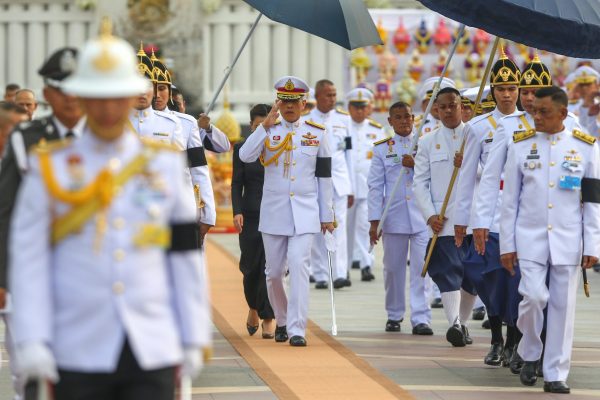But this new pact is one that at best may fail to protect citizens from the rulers’ excesses and at worst may facilitate the dispossession of their rights.
The Constitutional Drafting Committee (CDC), handpicked by the National Council for Peace and Order (NCPO), quietly released the draft of the constitution to the public in late January 2016 with a referendum set for 7 August 2016. Unlike earlier draft constitutions, very few paper copies were distributed to citizens — anyone interested had to go out of their way to procure a copy. Difficulty of access was compounded by a ban under the Referendum Act on any public events or dissemination of information about the draft by anyone other than the CDC or NCPO. Violation was punishable by imprisonment of up to 10 years, a fine of up to 200,000 baht (about US$5800) and loss of the right to vote for 10 years.
Despite the threat of punishment, some decided that an ill-informed populace posed a greater risk than their own possible loss of liberty. At least 212 were arrested and charged in the lead-up to the referendum. They are all being prosecuted for their actions and if convicted face sentences comparable to committing violent assault.
Examination of the draft constitution — which was a lengthy 279 articles — illustrates why those concerned with human rights, democracy or the separation of powers were alarmed. Despite reference to upholding rights and liberties (Section 25), the draft constitution also provided for an appointed upper house (Section 269), stipulated the monitoring of the ‘morals’ of members of the lower house (Section 219) and left the significant corpus of executive orders of the NCPO in place (Sections 265 and 279). After six months of heavily restricted public discussion, the referendum was passed with a 61 per cent majority. Only 59 per cent of the electorate voted.
But another seven months passed before the constitution was signed into law. The death of King Bhumipol Adulyadej and the naming of King Maha Vajiralongkorn slowed down the promulgation and all aspects of a possible transition, however partial, to democracy.
King Vajiralongkorn has not demonstrated or expressed an anti-democratic stance. The problem is that his political stance — and it seems for that matter anything about him — cannot be questioned under Thailand’s draconian lèse majesté law, which is Article 112 of the Criminal Code. Prior to the 2014 coup, six people had been imprisoned under Article 112. Since the coup, there have been 105 new known arrests.
But those known to be charged since Vajiralongkorn became king suggest that a new pattern of deepening repression may be emerging that exceeds even that engendered by the coup, in which actions such as performing plays, carrying on conversations in taxis, and writing graffiti in shopping mall bathrooms can result in prison terms. Eight people are known to have been arrested for lèse majesté since December 2016.
A series of events since the promulgation of the new constitution suggest a transformation that extends far beyond the text. On 12 April, observers discovered that the manhole-sized pin in the road near the Rama V statue in Bangkok — which marked where the People’s Party announced the transformation from absolute to constitutional monarchy in 1932 — had been replaced by one glorifying absolutism. Activists who asked pointed questions about the change were quickly picked up by the military.
Then on 13 April, the NCPO banned contact and dissemination of materials from three outspoken analysts of the monarchy and state with significant social media followings: Somsak Jeamteerasakul, Pavin Chachavalpongpun and Andrew McGregor Marshall. During the first two weeks of May, seven new Article 112 arrests have been made. Few details about the arrests have been released to the public, but the alleged crimes relate to social media posts.
The problem is not that King Vajiralongkorn is personally behind these arrests. The problem is that his involvement in the denial of liberty cannot be queried without inviting an accusation of Article 112.
Article 3 of the new constitution stipulates that ‘sovereign power belongs to the Thai people’. Until questions about the relationship between the monarch, the military dictators and the people can be raised without the possibility of those who ask losing their liberty, the pact between the rulers and the ruled in Thailand is one that leaves citizens bereft of a role in the polity.
Tyrell Haberkorn is a Fellow at the Department of Political and Social Change, The Australian National University.

